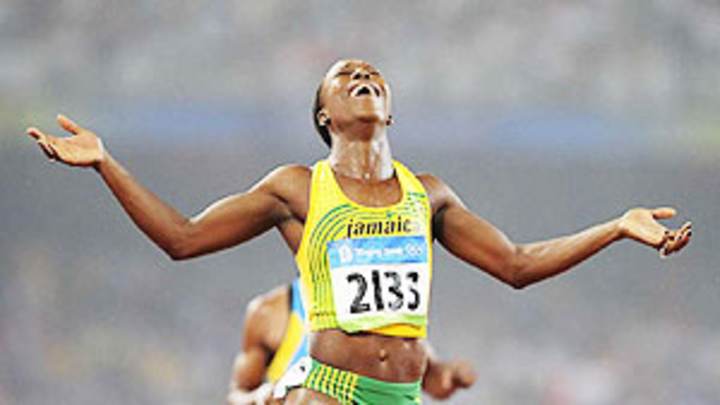Why the Jamaicans are running away with sprint golds in Beijing

1. Tradition: Think Notre Dame football. UCLA basketball. The Yankees. Before the torch was lit in Beijing, Jamaica had won 41 medals in Olympic track and field, dating back to the first two: Gold and silver by Arthur Wint and Herb McKenley in 1948. Names like Donald Quarrie and Merlene Ottey are holy on the island. In the United States, track and field is a marginal, niche sport that pops its head out of the sand every four years and occasionally produces a superstar. In Jamaica it is not the only sport. Kids play soccer and cricket. But it's a major sport. When Sports Illustrated visited the island in late spring for a feature story on Asafa Powell and Usain Bolt, dozens of small children showed up for a Saturday morning youth track practice. That was impressive. That they were all wearing spikes was stunning.
2. Staying home: It was widely and correctly reported that Bolt's 100-meter victory was Jamaica's first gold medal in that event. But other Jamaicans have crossed the line first, wearing other colors: Ben Johnson in 1988 (Canada, and he was later stripped of his gold), Linford Christie in 1992 (Great Britain) and Donovan Bailey in 1996 (Canada). If all of these men had worn green, black and yellow, Bolt's gold would be perceived as only the latest -- albeit the fastest -- in a long line.
3. Staying home, Part II: There is bountiful talent on the island, just like there is bountiful talent in the U.S. The key is in properly developing that talent. For many years, U.S. college coaches have aggressively recruited the Caribbean, including Jamaica. Quarrie went to USC, Ottey to Nebraska, 200 gold medalist Campbell-Brown to Arkansas and Beijing 100-meter co-silver medalist Stewart to Auburn. There are many others. But in recent years, more Jamaican athletes have chosen to stay home. Again, when SI visited in May and watched a practice by the Kingston-based MVP track club, those on the track at 6 a.m. included Powell, Beijing 100-meter co-silver medalist Sherone Simpson, Shelly-Ann Fraser and Beijing 400 hurdles gold medalist Melanie Walker. Even U.S. coaches have realized that the demanding U.S. college schedule grinds up athletes and does not necessarily lead to gold medals. Hence many U.S. athletes (Allyson Felix, Alan Webb, Clement) are training outside the college system. By staying home and both training and attending college on the island, Jamaican athletes can focus on winning international medals.
4. Perfect storm: Medal hauls are always partly serendipitous. Bolt developed into a superstar beyond anyone's expectations. U.S. women laid an expected egg in the 100, helping a Jamaican sweep. Luck plays a role.
5. Until recently, no national drug testing system: Maybe this is a factor and maybe it's not. If you assume that all Jamaican athletes are clean, then it's not a factor. But the fact is that Jamaican athletes are subjected to less out-of-competition drug testing than, say, U.S. athletes. Just before the Games, Jamaica announced the formation of a domestic drug-testing body, which might soften suspicion.
And, finally, No. 6: Usain Bolt was born there.
